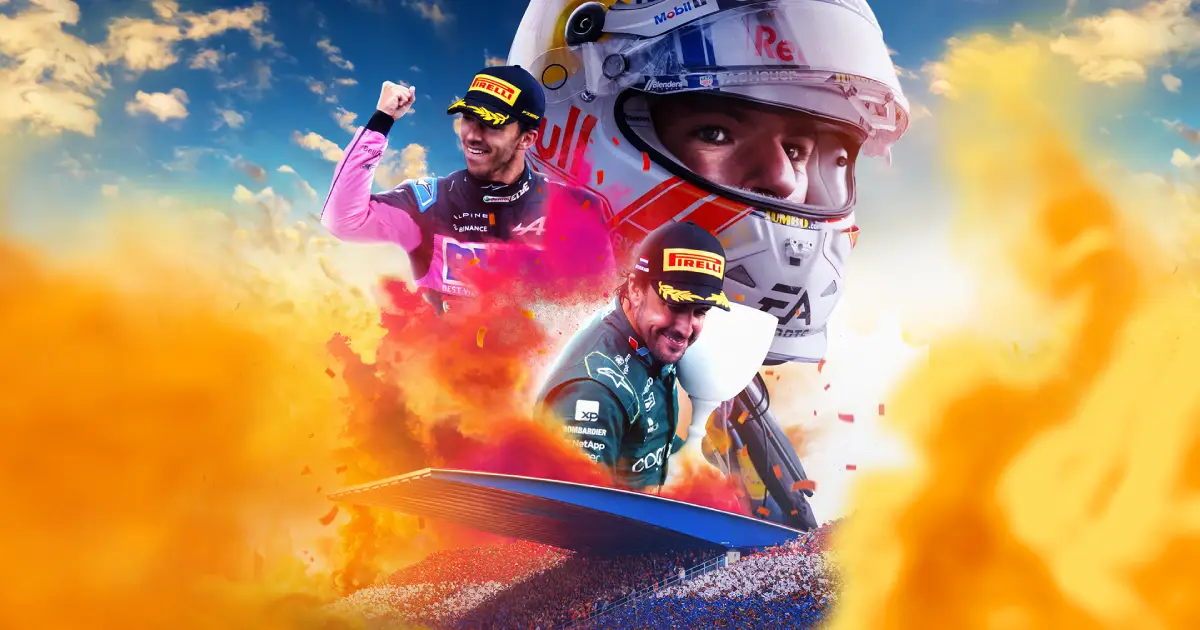Zandvoort F1 Grand Prix: end of gambling ads
The 2025 edition of the Dutch Grand Prix in Zandvoort marks a major break in the recent history of Formula 1. For the first time, no team will be allowed to display the logo of a gambling operator, whether local or foreign. This is a strong decision imposed by the Kansspelautoriteit (Ksa), the Dutch gambling regulator, which aims to put an end to the growing visibility of sports betting at popular events.
A total ban on betting in shop windows
The Ksa has been clear: no gambling advertising will be tolerated at the Zandvoort Grand Prix. The regulator pointed out that, since 1 July 2025, Dutch law has already prohibited any promotion of online gambling during sporting events. The stated objective is twofold: to limit young people’s exposure to these advertisements and to reduce the attractiveness of unregulated offers.
‘Sports teams participating in events in the Netherlands, including foreign teams, are not allowed to display promotional messages from gambling operators in a visible manner, regardless of whether or not they are licensed in their own country,’ said a spokesperson for the Ksa.
A team deprived of its main sponsor
This measure has immediate consequences. The Sauber team, sponsored by Stake.com, an iconic example of partnerships between Formula 1 and online gaming operators, is directly affected. At Zandvoort, its single-seater will not be able to display the name of its main partner. In 2024, Sauber had already had to adapt its branding for certain races, but Dutch regulations now make any flexibility impossible.
The paradox of a globalised Formula 1
This decision highlights a contradiction: Formula 1 claims to be global in scope, but must adapt to increasingly strict local legislation. The same sponsor may be visible in Singapore, banned in London and completely erased in Amsterdam.
For teams, the proliferation of these restrictions is a headache. With budgets largely funded by sponsorship, each ban undermines an already complex economic balance.
The Zandvoort case also illustrates the growing role of national authorities in relation to the giants of world sport. By banning all visibility for gambling operators, the KSA shows that a single country can influence the face of a global sport.
What alternatives are there for the teams?
Deprived of part of their income, the teams will have to look for other sources of funding. Technology brands, energy giants and car manufacturers could take advantage of this vacant space. But there is no guarantee that these partnerships will match the financial windfall provided by gaming operators, who have been among the most generous in recent years.
Another option is to develop screen brands, as Sauber has already done with Kick in certain countries. But the KSA has warned that any attempt to circumvent the rules will be punished.
A symbolic turning point at Zandvoort
The 2025 Zandvoort Grand Prix will undoubtedly remain a symbolic milestone: the moment when a national authority dared to put a stop to the omnipresence of sports betting in Formula 1.
It remains to be seen whether this decision will remain a Dutch exception or whether it will mark the beginning of a global movement towards an F1 free of gambling.


